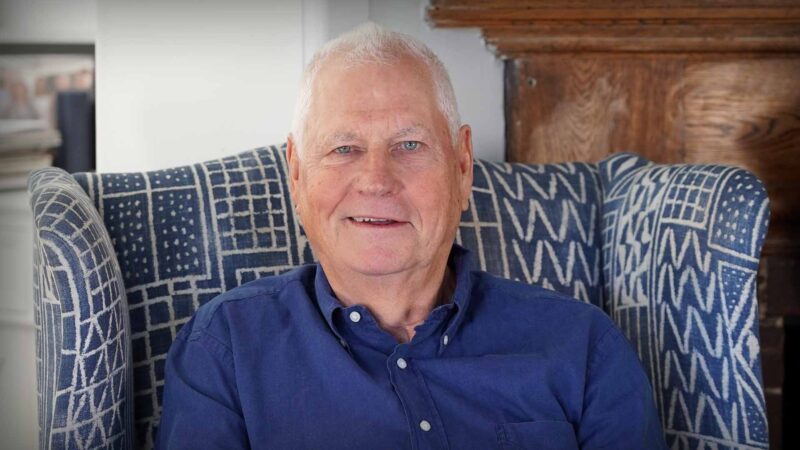PAEDIATRIC MENTAL HELP FOR CHILDREN OF DEFENCE PERSONNEL, VETERANS AND FIRST RESPONDERS Psychosocial research translated into teaching resources
Filmed in Armidale, New South Wales | November 2024
Dr Marg Rogers is a Senior Lecturer in Early Childhood Education at University of New England (UNE) in Armidale, New South Wales. She is a prominent figure in early childhood education New South Wales, and is also a Post Doctoral Fellow at the Manna Institute, a mental health research organisation within the regional university network across Australia, that is building place based research capacity to improve the mental health of regional, rural and remote Australia.
Dr Rogers has taught across all areas of education: early childhood, primary, secondary and tertiary. She researches marginalised voices within families and education, especially in regional, rural and remote communities.
Many Australian Defence Force (ADF) members reside in rural, regional, and remote (RRR) communities, creating significant challenges for their families regarding mental health service access. With 30% of current ADF members living in these areas, families often endure waiting lists for specialised care, which is typically located in metropolitan settings. As a result, children in these families frequently witness trauma, leading to potential mental health issues.
Australian Health Journal spoke with Dr Rogers on her research focusing on paediatric mental health, specifically developing early intervention psychosocial resources for children from veterans, defence families, and first responders.
Dr. Rogers emphasises the need for increased support and resources for these families, advocating for flexible, accessible care that moves with them, including telehealth options. Her work includes developing printed and digital storybooks based on children’s narratives to help families cope with issues like moral injury.
The impact of her work, has also garnered interest overseas, in collaborative efforts with Canadian and UK institutions who are further enhancing these resources for affected families in their own countries.
You Might also like
-
Continuing education program leads to better conversations
Medicines Australia’s Continuing Education Program (CEP) is designed to educate medical representatives to a recognised industry standard. Dr Tristan Ling, CEP Academic Lead and Project Manager at the College of Health and Medicine, University of Tasmania talks about the 900 students that come through the program each year.
The CEP is primarily directed at medical representatives working within the prescription medicines industry, but is also recommended to people who may not be currently employed within the industry but would like to pursue a career as a medical representative. It is also available to personnel working for organisations interacting with the pharmaceutical industry.
-
Australia’s Nursing Crisis Snapshot
“Nursing, already under pressure, is reaching breaking point due to the pressures of COVID-19 and a disjointed healthcare system, including the acute, primary and aged care sectors”, says Kylie Ward, Australian College of Nursing CEO adding, “We must act now to protect our nurses and healthcare; the time has come for a national reckoning on nursing in Australia.”
Australian nurses cannot continue to work under the extreme pressure they are currently operating under – the impacts are mounting.
The almost 400,000 Australian nurses are a constant presence in every one of our major life milestones, national emergencies and global crises. The nurse of today holds a science degree, possesses highly technical training, valuable medical opinions, front-row expertise, is an effective trainer, and is skilled in population and systemic thinking. But the pandemic is inflicting a major emotional and physical toll on nurses.
In this “Perspectives” special, Australian Health Journal spoke with 4 nurses on the challenges they or nurses in their circle have experienced, the key issues as well some of the opportunities. These nurses come from national leadership & policy, large scale workforce management, a final year student completing over a year on placement across 6 Melbourne Hospitals and a NSW based ICU nurse stranded in Mexico, unable to return to a critical role in nursing to an already strained team due to incoming quotas.
While the issues are challenging, there are strategies that can be put into place to ease the pressure, to support nurses, and nursing care in Australia. These are discussed by the the 4 nurses.
– Adjunct Professor Kylie Ward FACN CEO, Australian College of Nursing
– Adjunct Professor Alanna Geary FACN ACN Chair of Workforce Sustainability Policy Chapter & Chief Nursing & Midwifery Officer, Metro North Health
– Natalie Reyes, NSW based ICU Nurse Currently stranded in Mexico
– Hayley Pollock, Final Year Bachelor of Nursing Student & ACN Emerging Nurse Leader
Post Views:
2,833 -
Jamie Stanistreet talks Medical Technology
Jamie Stanistreet
Retired Managing Director Medtronic Australia and New Zealand
talks Medical Technology in Australia and the Asia-Pacific



